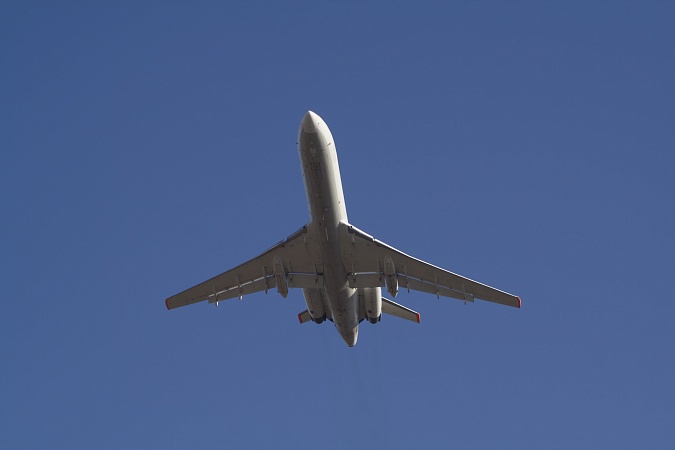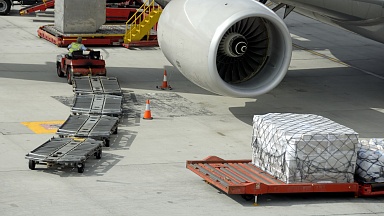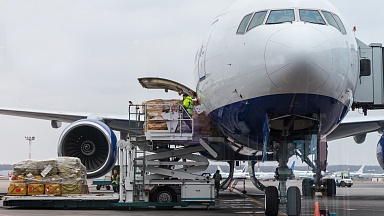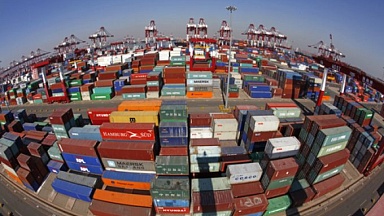Air freight rates ex-Asia have remained at exceptionally high levels this week as the squeeze on uplift and airport handling capacity continues at key export and import hubs.
The Baltic Air Index (BAI) shows that spot prices this week from Hong Kong and Shanghai to North America remain above US$ per kilo, with rates to Hong Kong to Europe rising to $7.24 a kilo, with rates from Shanghai to Europe trailing a little at US$6.59/kg.
US freight forwarder Flexport reports that transpacific eastbound (TPEB) air freight spot rates have begun increasing again from North China due to increases in demand. It reported that Shanghai Pudong (PVG) airport is also «still experiencing some operational handling issues which will likely impact peak volume».
On the Asia-Europe (Far Easy Westbound or FEWB) trade, Flexport’s latest Air Freight Market Update this week reports that rates «are relatively stable», but highlights that terminal congestion at Frankfurt Airport (FRA) «is expected to continue for another two weeks» and is also starting to impact terminals at Amsterdam Schiphol (AMS).
From South China, Flexport said demand and rates «continue to increase for both TPEB and FEWB lanes», with prices ex-Hong Kong (HKG) rising to almost the same levels as ex-PVG.
«HKG-US capacity is full for the week with ocean conversions still prevalent in the market,» Flexport noted.
Ex-Taiwan, the market «is tight with strong demand for the remainder of the month».
More generally, it said «standard service on TPEB lanes are full until 26 October», warning customers to «expect booking delays of around 5 to 7 days». Flexport added: «FEWB standard service is also seeing similar congestion delays at origin with the majority of space full until 10/28.
«Transit times overall may vary and are subject to cargo dimensions, package type, and density.»
Due to the continued strong FEWB demand, Flexport noted that Cargolux, a major provider on the FEWB lane, recently updated its cancellation policy.
Challenges ex-Southeast Asia
Meanwhile, from Southeast Asia, Flexport notes: «The BKK market situation continues to be very tight with some carriers only able to accept palletised cargo to LAX/JFK in mid-Nov; loose cartons are preferable in the market.
«FEWB rates have increased as many of the airlines are overbooked and the remaining capacity is very limited. Terminal operations ex-Northern Vietnam are extremely congested due to the high amount of air volume. All the airlines are overbooked, especially to ATL, JFK, and FRA. FEWB rates will continue to climb until the end of November.»
And demand ex-Southern Vietnam is also «still increasing», with Flexport noting: «TPEB rates remain at similar levels to the previous week. FEWB demand, in particular, has increased significantly and space is full for the week.
«The rate level has also jumped quite a bit. We recommend placing bookings at least a week in advance.»
Europe demand still steady
Flexport notes that demand is currently «still steady» ex-Europe, although rates «fell slightly due to the re-introduction of capacity on the transatlantic». It said secondary hubs «like DTW are an attractive solution if lead time allows. There are also some deferred capacity options in the market keeping capacity stable for current demand.»
It advised customers to «expect market stability to continue through October.
But Flexport also highlighted «very heavy strain on import terminals AMS and FRA», noting: «Building in extra lead time is vital at destination, as this disruption is expected to persist for the remainder of Q4.»
It said European export terminals «are also facing strain», noting: «At AMS, trucks are waiting a number of hours to unload their export cargo, in some cases being turned away to the following day, risking missing Latest Acceptance Times (LAT).»
Flexport said Far East Eastbound rates have increased since last week, although «ample capacity remains on this trade lane». Nevertheless, it said «advice continues for all trade lanes ex EU: Place bookings at least 7 days ahead of CRD (cargo ready date) for most optimal rates and routing solutions.»
Americas challenges
From the Americas, Flexport noted that US export demand «is increasing in the second half of October», noting that «larger shipments from major outbound gateways can take 2 to 4 days from booking to uplift into the EU, LATAM, or Asia.»
And cargo handling problems are continuing at major metropolitan hubs, which have been experiencing delays and backlogs for several weeks. «LAX/ORD/JFK ground handlers continue to face large backlogs and are using off-airport facilities to manage the flood of inbound cargo, which has a trickle-down effect on the export side,» Flexport noted. «Many have shortened their free time for storage, and have implemented new, earlier close outs for exports to accommodate longer throughput times and screening requirements.»
On the pricing side, Flexport said «rates haven’t experienced any significant changes compared to the previous week», but highlighted «slightly higher transit times into European hubs due to their current labour shortage, and high throughput time».
As with many markets currently, it advises customers to «book early, considering the dwell time at airports».




